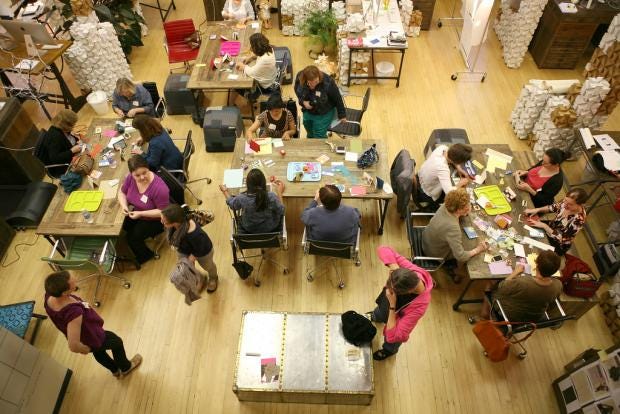
For us, the generation which in 2012 took that crucial, final step ahead towards higher education, the changes and challenges of the system came in waves. The first one, and perhaps the one with the biggest impact, was the rise in tuition fees.
This was closely followed by protests against unpaid internships, job cuts and disheartening media headlines and case studies which showed that nearly one in 10 new graduates is unemployed six months after graduation. Choosing between top grades and work experience while studying for a degree is definitely not a choice anymore.
Ideally, students should start applying for work placements and internships in their first year. As the academic workload and requirements are slightly less overwhelming when you’re a fresher, the timing would be great for combining a work placement and your degree. But, as we all know, the competition is tough, and it’s very likely that as a student with little or no previous experience in your chosen field, older applicants will be prioritized over you. This is a classic Catch-22: nobody will hire you without any previous experience, but how would you be able to get experience if nobody will give you a chance to acquire it in the first place? With that in mind, we reserve mainly our second year (and third, and fourth) of university to apply for these coveted positions, because let’s face it: the prospect of graduating and having to spend months after applying for jobs – or worse, unpaid internships – is daunting.
That is why I decided to treat my second year as a deadline. At the end of those 12 months, I would have something valuable to show for it: good grades and a considerable amount of knowledge and work experience on my CV; this was the case for many of my friends. Universities usually advise students to undertake placements or internships during Christmas and Easter break or summer holidays, but what happens if that’s not enough? How do we know that those few summer applications won’t result in a disastrous example of ‘putting all your eggs in one basket’?
After tailoring and submitting applications, I was faced with a tough decision: I was invited for a coveted placement in a place I had long wanted to work in. Unfortunately, it was during term time, exactly before hand-ins and deadlines. You might think it was actually a simple choice, as did a few of my friends when I explained the situation – take the job, skip uni for two weeks, no big deal.
But then again, it is a big deal. Although it might not always feel that way from the very beginning, the second year of university is harder: bigger challenges and bigger expectations. If you’re doing a joint degree, like I am, it’s an actual milestone, as you have to decide which way you’re going, which career path you’ll be following for (hopefully) the rest of your life. That also means double the amount of applications, because it’s impossible to decide without having any real experience and seeing what suits you best. You’re expected to graduate with at least a 2:1 in order to secure a good job, but you need to have something practical to show for it, apart from university projects and assignments.
I remember thinking then, how unfair it is that we should have to choose between the two, when society, the job market and even ourselves expect us to graduate with both – good grades, academic knowledge and the experience. Luckily, one of my lecturers’ advice played an important part: grab an opportunity with both hands, rather than sit in a classroom (as long as you feel capable to cope and catch up afterwards). Academic knowledge is important, but if you can’t apply it to real-life, job situations, it loses its strength.
Successfully merging a degree with work experience may be hard work, but it’s not impossible. So go on, have your cake and eat it too.
[Source:- INDEPENDENT]




